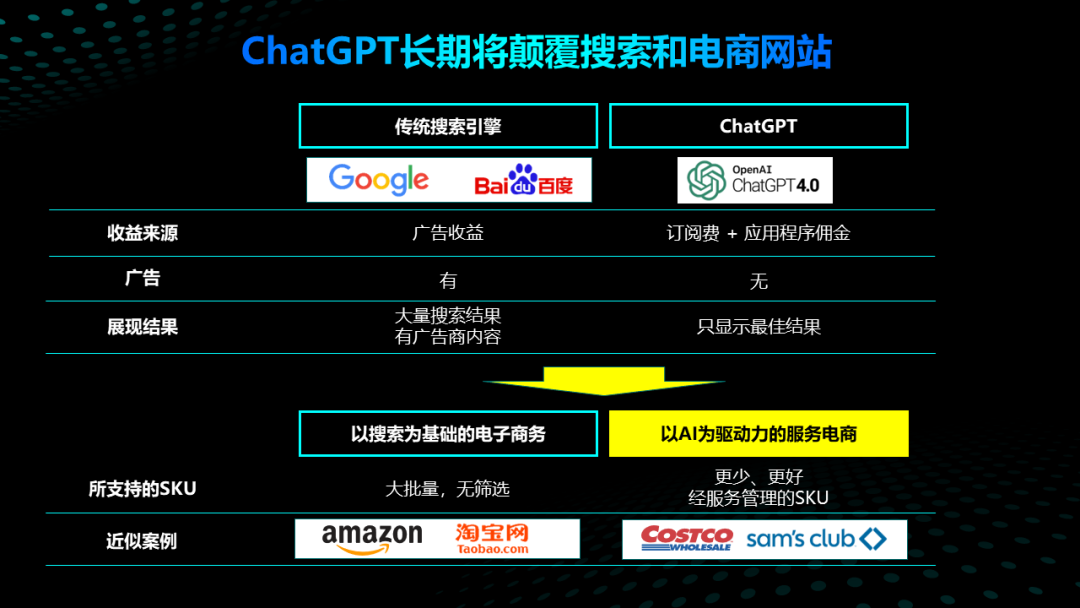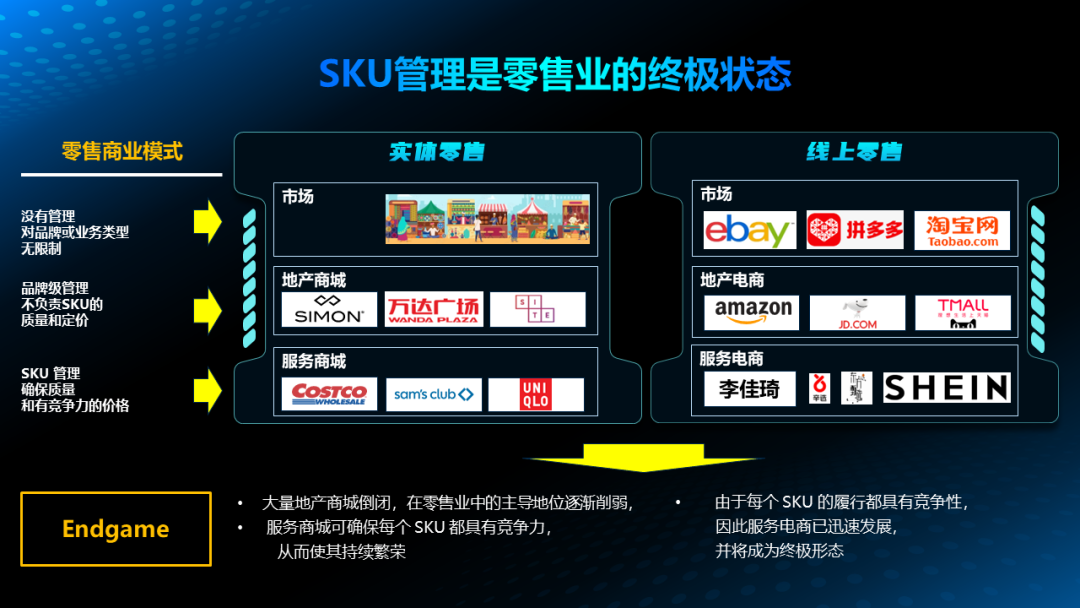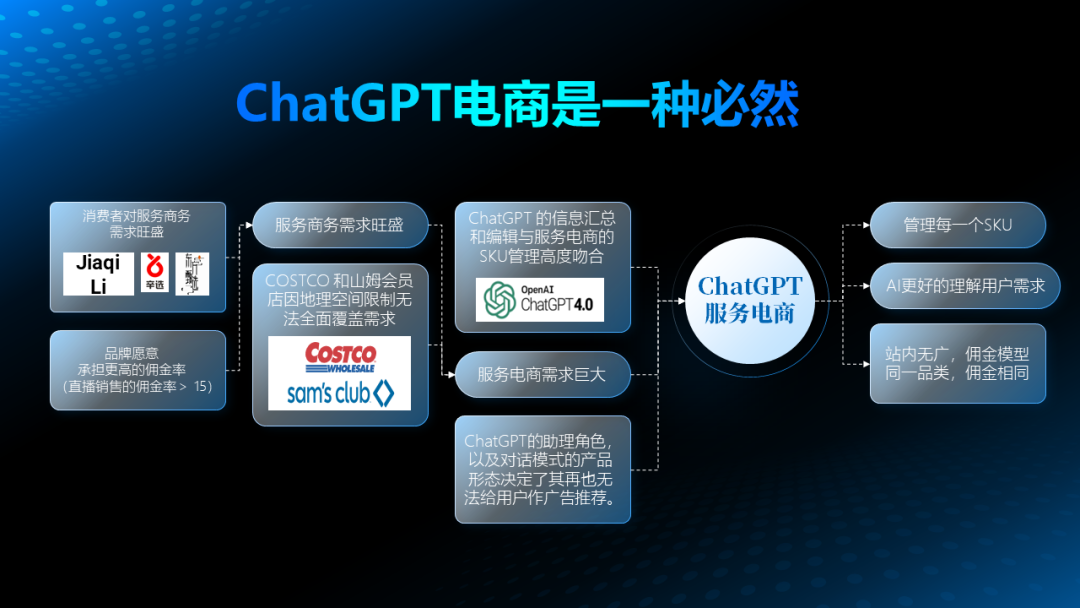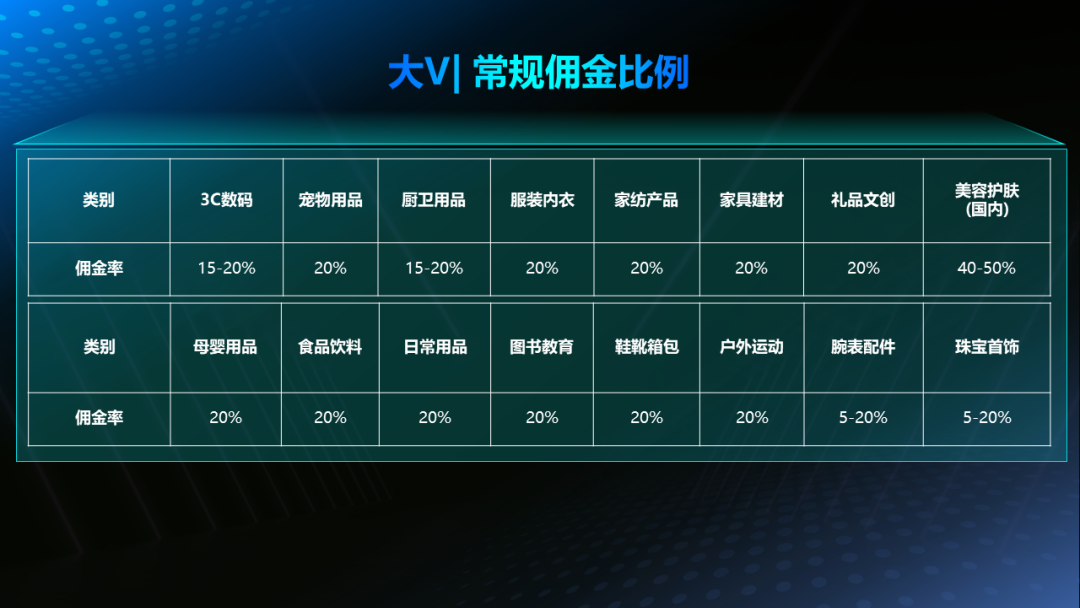What Will Jack Ma's Vision of 'AI E-commerce' Look Like in the Future?
-
2023 has passed, and after ChatGPT dropped a stone in the tech and business circles, the ripples are slowly spreading.
In the e-commerce industry, Bill Gates has already clearly stated: AI agents will replace search websites because they will be better at finding and summarizing information; they will also replace e-commerce websites because they will find you the best prices.
Alibaba has also taken the lead in defining the strategy for the new era as 'AI e-commerce.' Jack Ma internally emphasized, 'The era of AI e-commerce has just begun, presenting both opportunities and challenges for everyone.'
As a serial entrepreneur continuously observing the information flow advertising and e-commerce industries, I will speculate on what 'AI e-commerce' might actually look like.
In the long run, AI's impact on search and search-related applications is enormous, with the potential to completely disrupt search engines and their cash cow—the pay-per-click advertising revenue model. That's why Google is currently the most concerned about ChatGPT. However, OpenAI's challenges also seem quite evident: if the advertising model is disrupted, how will it make money?
Users are accustomed to free services, making subscription-based payments seem like an unfavorable option. The rise of application layers is key for OpenAI to form a long-term commercial closed-loop and become a true industry giant.
For ChatGPT to quickly find a profitable model at the application layer, tools related to text, images, and short videos appear to be easy breakthroughs. However, as supplementary tools alone, their potential is limited. Fields like education, robotics, and healthcare still seem relatively distant. AI-powered e-commerce, where each recommendation earns a commission, is close to monetization and operates in a vast market—making it a promising direction.

ChatGPT manages information for users and presents it in a conversational format. So, can GPT manage individual products in the same way it manages information? Are there similar commercial cases? The answer is yes.
Offline examples include Costco and Sam's Club, while online examples include live-streaming e-commerce influencers like Li Jiaqi, Xinba, and Dongfang Zhenxuan.
We analyzed 500 products from Li Jiaqi's 618 live-streaming event in 2023, comparing them with identical products from Sam's Club, Taobao flagship stores, and JD.com's self-operated stores. After conducting price comparisons at the smallest unit level, we found that the prices of Li Jiaqi's products were 100% lower than those in Taobao flagship stores and 95% lower than those in JD.com's self-operated stores. Additionally, over 80% of Sam's Club products were priced lower than those in Taobao flagship stores and JD.com's self-operated stores.
"Standard products are cheaper" is the strongest value perception for users. Li Jiaqi and Sam's Club aggregate the value perceptions of numerous brands, building strong trust and user loyalty. This is the core reason behind the strength of figures like Li Jiaqi and Sam's Club.
Now, imagine if AI were to take on the role of a top influencer or the head of product development at Sam's Club in the future. What would happen? What would the ideal product or entry point look like for an AI platform version of Li Jiaqi?
-
As a super platform with the influence of a key opinion leader (KOL), it would manage every SKU on the platform. ChatGPT's mission is to compile and edit every piece of information for users, while GPT e-commerce's mission would be to filter out SKUs that meet user needs, with the operations team responsible for price negotiations and quality management of products.
-
AI search as the entry point, with AI recommendations as a supplement. Compared to traditional search engines, GPT enhances the ability to understand and expand user queries. It also provides users with the capability to delve deeper into their questions, enabling them to find desired products more quickly and with less difficulty. Additionally, GPT can recommend products that users are likely to be interested in.
-
The AI search interface adopts a graphic-text mode, facilitating the display of 8-10 managed SKUs. Product showcases prioritize short videos (similar to live-streaming clips by influencers), supplemented by graphics and text. Short videos detail product sales, managed prices, reviews, and promotions. Users can also opt for the graphic-text mode.
-
AI performs real-time price comparisons, comparing product prices on platforms like JD.com and Taobao, allowing users to consistently perceive the value created by the AI-powered e-commerce platform.

So, what business model should such a product form match?
I believe that GPT e-commerce should adopt an ad-free commission model, with uniform commission rates for all brands within the same category.
The logic of real estate malls and traffic-based e-commerce is the same—essentially selling traffic and bidding ads. Just as Wanda Mall collects rent but cannot dictate the pricing of each product from its tenants, platforms that charge advertising fees should not enforce minimum pricing on branded products.
On the contrary, if ChatGPT wants to provide users with the best results within the scope of data and computing power, it cannot provide multiple links and thus cannot charge for bidding ads. Therefore, if GPT e-commerce aims to offer the optimal solution for each user need, there should be no ads internally. Instead, it should adopt a commission model, with the same commission rate for the same product category, ensuring GPT maintains an objective stance in product recommendations. The commission rate is similar to that of live-streaming influencers, averaging over 15%.
For users, this will create three key values:
1. Ad-free shopping experience within the platform: Products in the same category have the same commission rate, free from ad interference. The platform will be fully motivated to prioritize recommending high-quality and most relevant products, improving conversion rates and user retention. Users can shop with confidence.
2. More Authentic and Reliable Platform Data: With increased commissions, it becomes harder for merchants to engage in fraudulent practices, making the platform's data more trustworthy. Additionally, the platform and its management team are committed to objectively and fairly recommending products to users, incorporating data from multiple sources to protect user interests.
3. Platform's Continuous Exploration of Product Value: Free from the demands of advertising revenue, the platform will not only recommend branded products but also tirelessly explore the intrinsic value of products, moving upstream in the supply chain. In the long run, this will lead to the emergence of high-quality, low-cost factory hits, benefiting consumers worldwide.

Currently, GPT-powered e-commerce hasn't developed rapidly because operations are relatively heavy, which isn't OpenAI's strength or current strategic focus. However, with user demand, merchant needs, and OpenAI's profit requirements present, it's inevitable that GPT e-commerce will receive strategic attention, resource allocation, and experience rapid development once prioritized.
Search technology created search engines like Google and Baidu, as well as e-commerce giants like Amazon, Alibaba, and Pinduoduo. Although both Google and Baidu have entered the e-commerce field, they haven't become mainstream. Why couldn't Google Shopping and Baidu Mall compete with Amazon, Alibaba, and Pinduoduo? After analysis, we summarize three key reasons:
-
Traffic aspect: E-commerce traffic from search engines is smaller than that from pure e-commerce platforms, making it difficult to form strong aggregation effects.
-
Product aspect: Shopping through search engines offers weaker contextualization compared to pure e-commerce platforms, lacking price comparison capabilities.
-
Operational Aspect: Search engines are technology-driven, while e-commerce is driven by both operations and technology, with the latter presenting greater operational challenges.
In the AI era, GPT-powered e-commerce will undoubtedly exist, and pure AI e-commerce platforms will emerge independently. They share the same logic and will progress hand in hand. However, pure AI e-commerce platforms, with their advantages in traffic, user experience, and operations, will far surpass GPT-powered e-commerce in scale.
Is an AI-driven e-commerce model that relies solely on commissions without advertising truly viable commercially?
From an emotional perspective, influencers' traffic is purchased from platforms like Taobao and Douyin. These platforms also buy their traffic, and they profit from the price difference on influencers' traffic. Currently, influencers are making substantial profits. If platform development and operational costs are disregarded, influencers could potentially earn even more by purchasing traffic independently. The only obstacle is that individual influencers cannot bear the platform's development and operational costs alone.
From a rational calculation perspective, AI platforms have no internal ads. Referring to the current commission rates of top influencers (which vary by category, see chart below), their average GMV monetization rate would exceed 15%, possibly even higher. In contrast, Taobao and Pinduoduo's monetization rates were around 4% in 2022.
According to data from 100EC: In 2022, the annual active user per capita GMV contribution was - Live streaming e-commerce: ¥7,399; Alibaba: ¥7,976; Pinduoduo: ¥3,797. Based on GMV monetization rate estimates, even if an AI e-commerce platform only achieves half of live streaming e-commerce's GMV (¥3,699), a single annual active user would contribute ¥319 to Alibaba, ¥151 to Pinduoduo, and ¥555 to the AI e-commerce platform.
Currently, Taobao has tens of millions of SKUs, while AI e-commerce platforms would likely maintain around 1 million SKUs due to SKU management constraints. Compared to ChatGPT's parameters measured in hundreds of billions, AI e-commerce's computing power demands are relatively smaller. Therefore, there won't be significant differences in computing costs between AI and traditional e-commerce. Other per-user acquisition costs and platform operation expenses are also comparable. Overall, from a single-user perspective, AI e-commerce platforms demonstrate significantly higher ROI than traditional e-commerce platforms.

Finally, an ad-free AI e-commerce model doesn't mean advertising is meaningless. AI e-commerce still needs to use advertising for large-scale customer acquisition during its growth phase.
In any case, an AI-powered e-commerce platform that is more convenient than Costco or Sam's Club without geographical limitations, capable of meeting more long-tail demands; more efficient than live-streaming influencers at matching products, saving users more time; more user-aware than search-based e-commerce with better guarantees, allowing users to purchase what they want with their eyes closed; and easier to form commercial closed loops (with commissions for each recommendation) than pure language models is something worth anticipating. Its potential might be much greater than we imagine.
Looking forward to an AI world where information asymmetry is thoroughly eliminated, and user experience receives ultimate respect.
-
